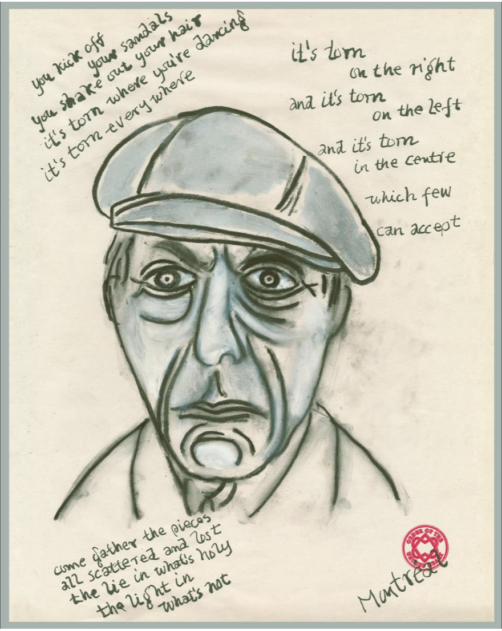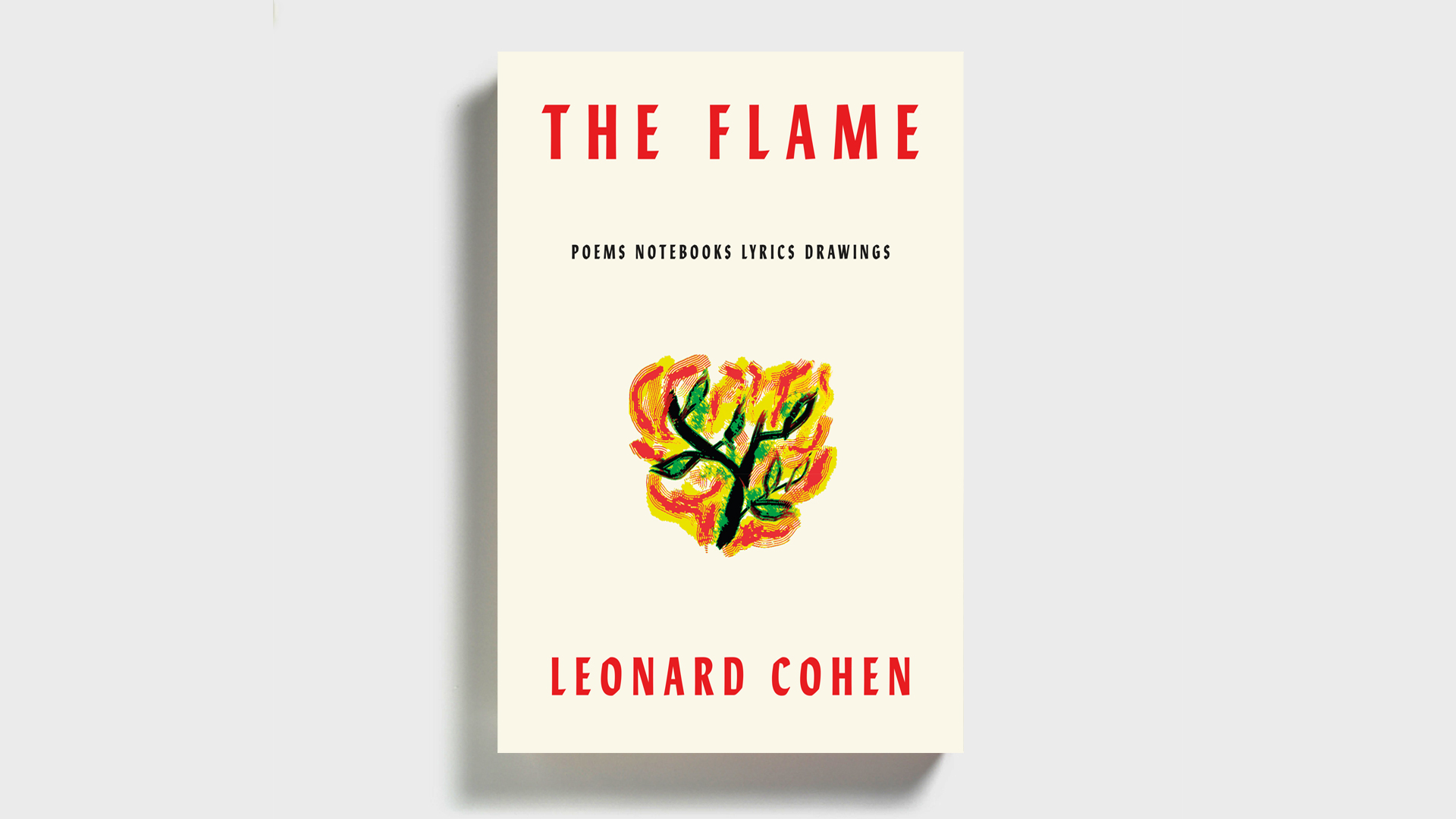Just weeks before his death in late 2016, Leonard Cohen said he was ready for the end to come—he just needed a bit more time to put his last book in order. Here, FSG Vice President and Executive Editor Ileene Smith briefs us on her acquisition of that book, The Flame, a stunning testament to Cohen’s enduring legacy.
It took some sleuthing to track down Leonard Cohen’s final manuscript, which eventually led me to far-flung Los Angeles, where I seldom go. But I became obsessed with the idea of bringing The Flame to FSG, where Cohen’s literary heroes Federico García Lorca and Pablo Neruda were also published. Fortunately, in the end, the stars aligned. Or in words of Goethe’s that Cohen would have known, “Providence moved.”
My passion for Leonard Cohen goes back to the ’70s, when his Songs of Love and Hate played in my college dorm room ’til the vinyl wore down. Later, “Suzanne,” “Bird on the Wire,” “Dance Me to the End of Love,” “Chelsea Hotel,” and “So Long, Marianne” became staples of my most intimate playlist. When Cohen, who was already quite ill, heard that Marianne Ihlen, the inspiration for “So Long, Marianne,” was dying, he sent her a letter that went viral. “And you know that I’ve always loved you,” he wrote, “for your beauty and for your wisdom.” Beauty and wisdom . . . the very qualities that connect Cohen fans worldwide to his work. “I want to wish you a very good journey,” he concluded. “Goodbye old friend . . . see you down the road.”
Leonard Cohen died on the eve of the 2016 presidential election. His death was no surprise. But the timing was uncanny. Did the man who wrote “You Want It Darker” know what was ahead? Did he, like Bartleby, “prefer not to”? Later that tumultuous week, Cohen was achingly present when Kate McKinnon sang “Hallelujah” on Saturday Night Live, in the guise of Hillary Clinton. In that moment, Cohen became, for me and many others, the bard of the resistance.
Leonard Cohen spoke of his “proximity to death,” and of his desire to put “his house in order,” in his moving final interview with New Yorker editor David Remnick. As Robert Kory, manager and trustee of the Cohen estate, explains, “During the final months of his life, Leonard had a singular focus—completing this book taken largely from his unpublished poems and selections from his notebooks. The flame and how our culture threatened its extinction was a central concern. Those of us who had the rare privilege of spending time with him during this period recognized that the flame burned bright within him to the very end. This book, finished only days before his death, reveals the intensity of his inner fire to all.”

An Illustration by Leonard Cohen
THE FLAME
POEMS NOTEBOOKS LYRICS DRAWINGS
by Leonard Cohen
On Sale from FSG on October 2, 2018
Leonard Cohen was a hugely influential Canadian poet, songwriter, and cultural icon who died on the eve of the 2016 presidential election. His “Hallelujah” is widely considered the redemptive song of the resistance. Cohen’s many canonical songs (“Suzanne,” “So Long, Marianne,” “Famous Blue Raincoat,” “Dance Me to the End of Love,” and others) have earned him a place in the small pantheon that includes Bob Dylan and Patti Smith. Cohen’s many honors include a Grammy Lifetime Achievement Award, a Prince of Asturias Award for Literature, and election to the Rock and Roll Hall of Fame.
Ileene Smith is vice president and executive editor at Farrar, Straus and Giroux.

